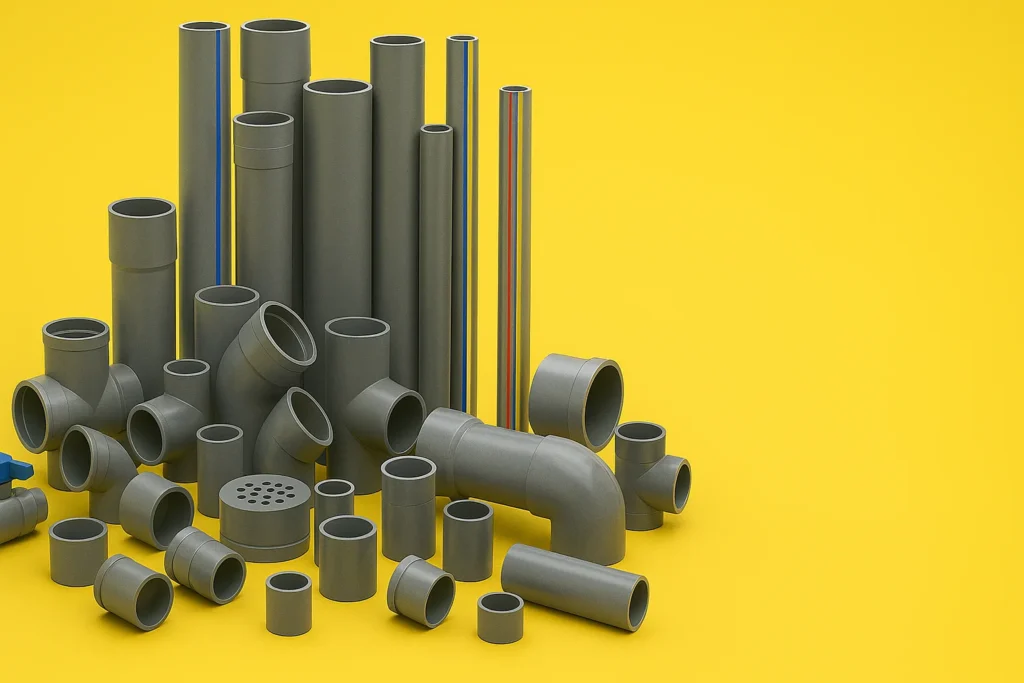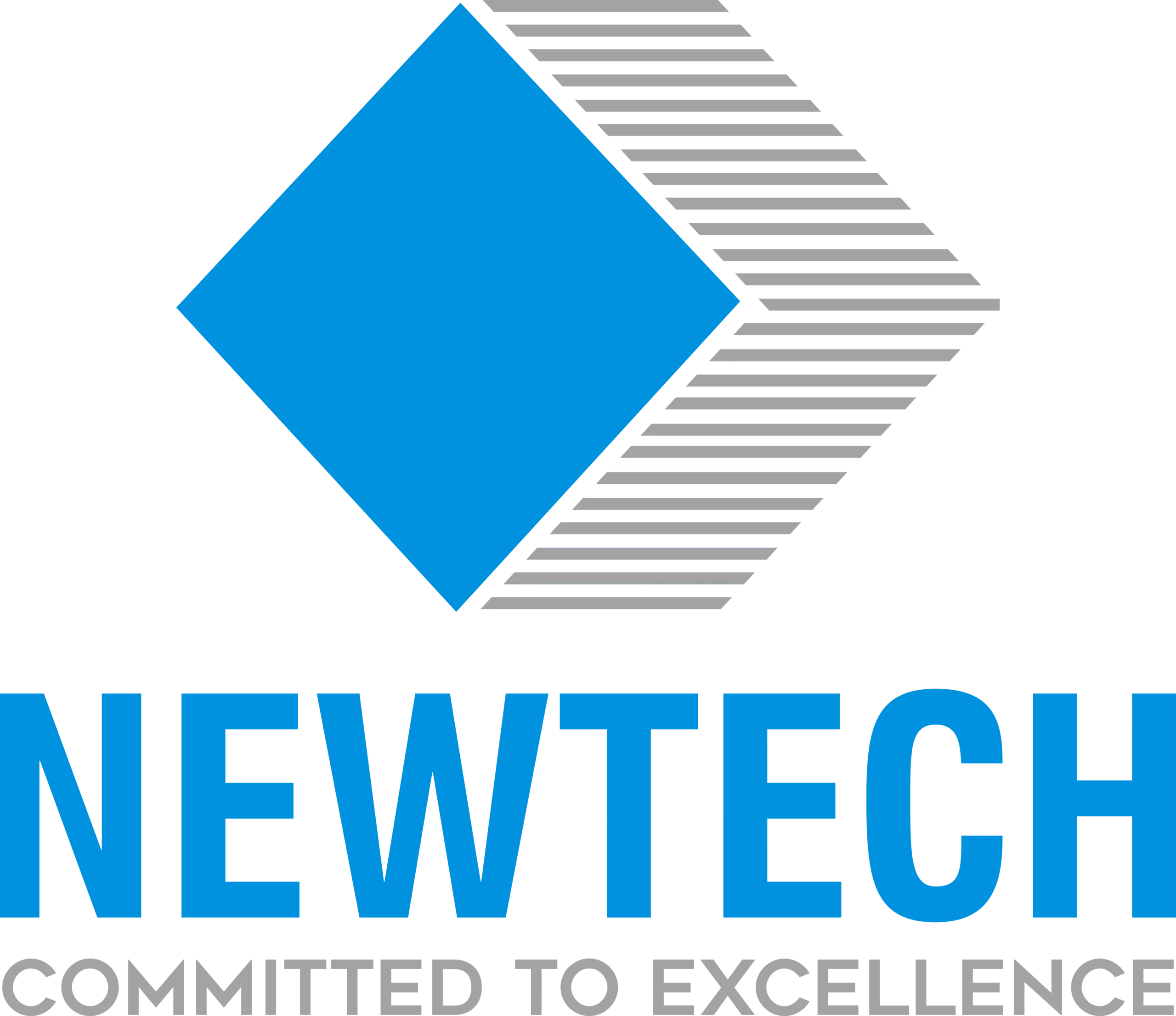Karachi, Pakistan’s largest city, faces constant challenges in providing clean and safe drinking water to its residents. The quality of pipelines carrying this water is just as important as the source itself. So the question is: Why should you consider uPVC (Unplasticised Polyvinyl Chloride) potable water system pipes for your home, building, or community in Karachi?In this guide, we’ll explore what makes uPVC a trusted choice, how it benefits Karachi’s unique conditions, and what you should check before installing it.
What is a uPVC potable water system pipe?
A uPVC potable water system pipe is a rigid plastic pipe specifically designed to carry drinking water safely. “Potable” means safe for human consumption, and “uPVC” means the pipe is made from unplasticised PVC — a stronger, more durable form of PVC that doesn’t contain added plasticisers.These pipes are non-toxic, corrosion-free, and resistant to bacterial growth. They are also approved by PSQCA (Pakistan Standards and Quality Control Authority) for potable water supply, ensuring they meet national health and safety standards.
Why is uPVC suitable for Karachi’s potable water needs?
Karachi’s water infrastructure faces issues like leakage, contamination, and high salt content in some areas. uPVC pipes are well-suited because:
- Corrosion resistance: They don’t rust or corrode in Karachi’s humid, salty air.
- Chemical resistance: uPVC is unaffected by chlorine or other water treatment chemicals.
- Smooth inner walls: Reduce scale build-up and keep water flowing at consistent pressure.
- Durability: Can last 25–40 years with proper installation.
- Lightweight: Easier to transport and install in congested city areas.
How does uPVC compare to other water pipe materials in Karachi?
- GI (Galvanised Iron): uPVC is lighter, cheaper, and doesn’t rust, whereas GI can corrode and alter water taste.
- HDPE: uPVC is more rigid and easier to install for straight runs, while HDPE is better for flexible routes.
- PPR: PPR can handle hot water, but for cold potable water, uPVC is more cost-effective.
Is uPVC safe for drinking water?
Yes — as long as it is certified for potable use. Certified uPVC pipes are made from virgin resin and are free from harmful chemicals like BPA and heavy metals. They do not leach contaminants into the water and are approved under ISO 1452 and NSF/ANSI 61 standards for drinking water safety.
What sizes and pressure ratings are available in Karachi?
uPVC potable water pipes in Karachi are available in a variety of sizes and pressure classes:
- Diameter: From ½ inch (for domestic taps) to 12 inches (for main supply lines).
- Pressure Class: Class B (PN6), Class C (PN9), Class D (PN12), Class E (PN15) — higher class means thicker walls and higher pressure handling.
Your choice depends on the water source, pressure, and intended use.
Where are uPVC potable water pipes used in Karachi?
- Residential buildings: For main supply from water tanks to homes.
- Apartment complexes: Distribution networks to multiple units.
- Commercial buildings: Ensuring clean water for offices, shops, and hotels.
- Hospitals & schools: Where water hygiene is critical.
- Community water supply projects: Linking municipal mains to local distribution.
What should you check before buying uPVC potable water pipes in Karachi?
- Certification: PSQCA and ISO compliance.
- Manufacturer reputation: Established brands with proven track records.
- Markings on the pipe: Size, pressure class, standard, manufacturer name, batch number.
- Visual inspection: Smooth, uniform color, no surface cracks or dents.
- Warranty: At least 10–15 years offered by reputable suppliers.
How is uPVC potable water pipe installed in Karachi?
Installation involves:
- Designing the layout: Minimising fittings and bends for efficiency.
- Cutting pipes to size: Using a fine-toothed saw or pipe cutter.
- Deburring & cleaning ends: To ensure strong, leak-proof joints.
- Jointing: Using solvent cement for permanent sealing, or rubber ring joints for demountable connections.
- Pressure testing: Checking for leaks before full commissioning.
- Connecting to storage tanks or municipal mains: Ensuring all connections are hygienic and sealed.
How much does uPVC potable water system installation cost in Karachi?
Costs depend on pipe size, pressure rating, fittings, and labor. As a rough guide:
- Small residential line (½–1 inch, Class C): PKR 150–350 per meter installed.
- Medium (2–4 inches, Class C or D): PKR 400–700 per meter.
- Large mains (6–12 inches, Class D or E): PKR 1,000–2,500 per meter.
Note: Prices may vary with market conditions and supplier location.
How do Karachi’s climate and environment affect uPVC pipe choice?
Karachi’s high humidity, salt exposure near the sea, and fluctuating municipal supply pressures demand a durable, non-corrosive pipe. uPVC’s chemical and salt resistance makes it ideal for these conditions, but UV-protected pipes should be used for any above-ground runs to prevent sun damage.
What are the benefits of uPVC for Karachi’s water systems?
- Safe for potable water.
- Long service life with minimal maintenance.
- Cost-effective compared to metal or advanced plastics.
- Easy installation, even in congested areas.
- Smooth flow with minimal friction loss.
Common mistakes to avoid in uPVC water installations
- Buying non-certified pipes to save money — leads to contamination risks.
- Using incorrect solvent cement — weakens joints.
- Skipping pressure testing — results in leaks after completion.
- Poor trench bedding for underground pipes — sharp stones can cause cracks.
- Ignoring UV protection for exposed pipes — reduces lifespan.
Where can you buy uPVC potable water system pipes in Karachi?
- Local distributors: Found in plumbing markets like Light House, Saddar, and Garden East.
- Direct manufacturers: Some have showrooms and delivery services in Karachi.
- Online suppliers: Offer quotes and delivery but always verify certifications before payment.
FAQs
1) Are uPVC pipes good for Karachi’s water supply conditions?
Yes, they are corrosion-resistant, safe for drinking water, and ideal for Karachi’s climate.
2) Can uPVC pipes be used for hot water in Karachi homes?
No, they are designed for cold potable water. Use PPR or CPVC for hot water.
3) How long will uPVC potable water pipes last in Karachi?
Typically 25–40 years with correct installation and maintenance.
4) Do uPVC pipes need special maintenance?
Not much—just occasional inspection for leaks or damage.
5) What’s the difference between Class C and Class D uPVC pipes?
Class D has thicker walls and handles higher pressure than Class C.
Wrap-up
In a city like Karachi, where water supply issues are complex, uPVC potable water system pipes provide a safe, durable, and cost-effective solution. Their resistance to corrosion, smooth internal surface, and certification for drinking water make them a reliable choice for homes, businesses, and community projects alike.By choosing the right pressure class, ensuring proper installation, and sourcing from certified suppliers, you can enjoy decades of clean, safe drinking water in Karachi.


